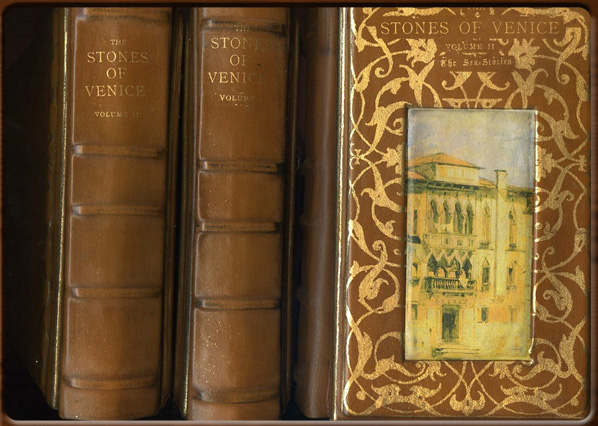
The stones of Venice.

No video
John Ruskin (London, 1819 - Coniston, Lancashire, 1900), was an author, art critic and art historian. He studied at Oxford University, where he was later appointed as Slade Professor of Fine Art in 1869.
Ruskin first expressed his theories of art in Modern Painters (1843-1860).
He then developed his ideas concerning the relationship between art, politics and society in two fundamental works: "The Seven Lamps Of Architecture" (1849) and "The Stones of Venice" (1851-1853), a work that truly reflected the nature of the lagoon city.
Not only did the latter work play a crucial role in the history of architecture (the discovery of Byzantine and Gothic art), it also provided a guide for teachers and a unique literary work for anyone wishing to learn about the environment and art of the unique, special city of Venice.
After 1860, Ruskin wrote many social essays, all with utopian theories and increasingly critical of industrial civilisation. Ruskin argued that the cultural unity of Gothic society was a positive alternative.
More specifically, his attack on trade and commerce in Munera pulveris (1872), attracted the hostility of the academic world, yet Ruskin continued to support and praise the myth of a fabulous Mediaeval Gothic age, founded on co-operation and common good, perceiving the importance of the ethical aspects inherent in all art.
1800 - 2000 - - rev. 0.1.6